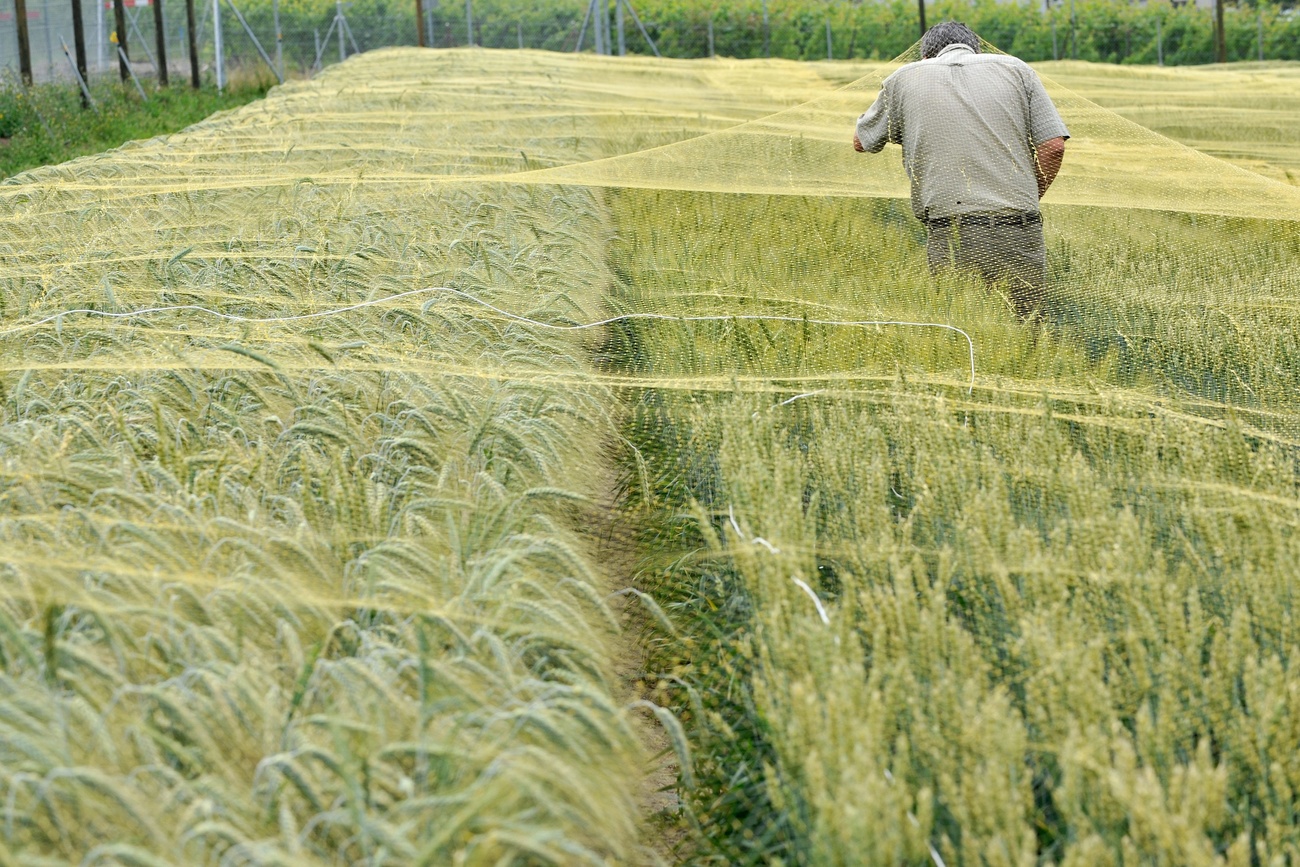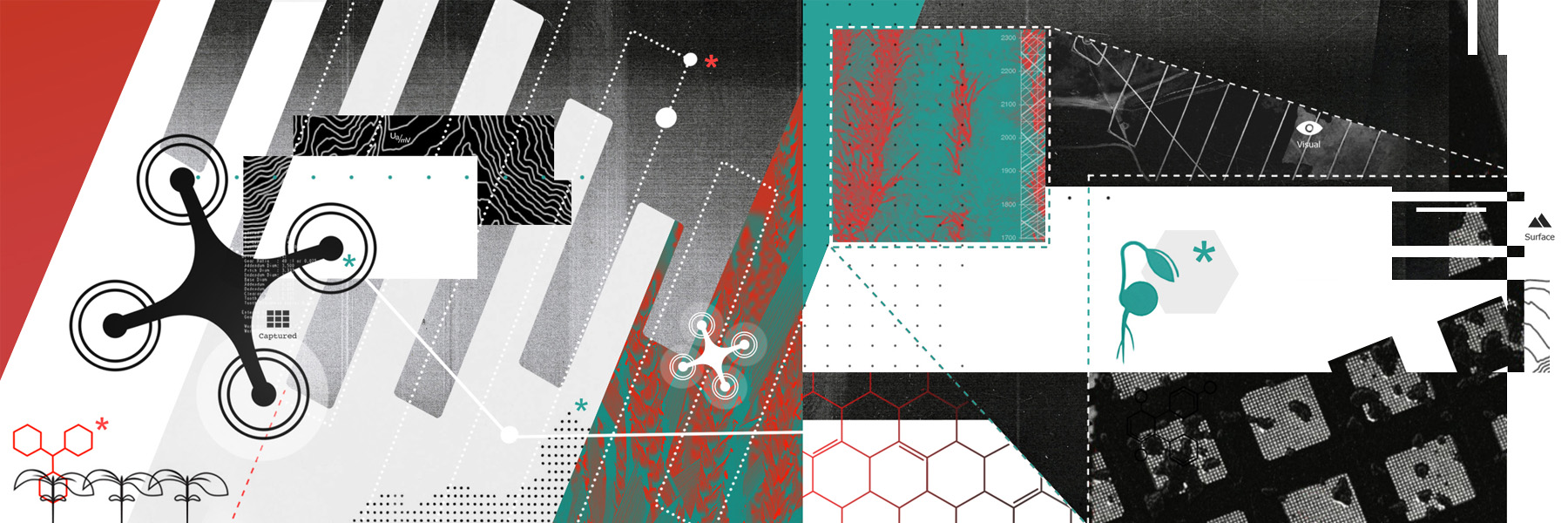
Swiss GMO ban: ‘What are we afraid of?’

The head of the Swiss federal body for agriculture research, Agroscope, has expressed frustration at the government’s plan to extend the moratorium on genetically modified plants for another four years after the end of 2021. Eva Reinhard says the wait-and-see approach is a waste of precious time as global food shortages loom.
The Swiss moratorium on the cultivation of genetically-modified organisms and sale of GMO products was first introduced following a people’s initiative in 2005. It has since been extended three times by parliament. Earlier this month, the government proposed a new extension until the end of 2025.
Making agricultural production more sustainable is a matter of survival for the global population, with an estimated nine billion mouths to feed by 2050. We will need to produce 1.1% more calories per year to meet this growing demand but this should not come from using more land. One quarter of global greenhouse gas emissions come from agriculture.
In this context, Agroscope’s Eva Reinhard says Switzerland’s GMO ban is out of step. “One degree of climate warming means three to four per cent lower [crop] yields. We already have a problem with drought resistance, and with GMO we can do something about that relatively quickly,” she said at the LifeFair Forum, an online conference about high-tech food.
Reinhard added that it was still unclear which methods may lawfully be used in Switzerland to breed new products for the market. “That makes plant growers unsure and is particularly difficult for the commercial plant breeding sector.”
“What are we afraid of? I don’t understand it anymore,” she said, pointing to the fact that the gene editing technology CRISPR-Cas9 won the Nobel Prize this yearExternal link.
“We have been looking at gene technology progressing for the past 40 or 50 years abroad. We’ve done x number of field tests and there hasn’t been any catastrophe. And still we have to wait.”
Under the current law, field work for Swiss research into the opportunities and environmental risks posed by the prototypes of new plant breeding technologies can only take place on protected sites.
The government statement announcing the extension of the moratoriumExternal link said the time should be used to “answer open questions on the new genetic methods and to discuss their importance in sustainable agriculture”.
Sustainable agriculture
Solutions to making agriculture more sustainable include reducing food waste, developing crops with higher yields and better resistance to drought and disease, and finding new sources of protein to replace meat, including fermenting biomasses from single cell organisms in tanks.
Digitalisation, using drones and multi-spectral imagery for example, also has a role to play in increasing efficiency and reducing the amount of fertilisers, water and pesticides used on the ground, Reinhard said.
Some experts consider GMO to be a last resort. Urs Brändli, president of the federation of Swiss organic farmers Bio Suisse said at the Lifefair ForumExternal link that there were many options on the table and it was important to try everything else first. “It’s a clear no-go to tamper with cells,” he said.
New approaches
Among the new approaches supported by Brändli is indoor farming. “If indoor installations in cities, for example in converted industrial buildings, can be used for food production in closed systems that don’t burden the environment, then why not?”
Brändli believes that organic produce, which now has a 10% market share in Switzerland, will continue to have a place in a more diverse market of new foods but is hard to produce at the scale needed. “Organic has a lot of answers to the problems we face but I would never say it’s the solution to feeding nine billion people in 2050,” he said.
Eva Reinhard of Agroscope agreed, pointing to the problem of low yields. “Organic farming has very positive effects on biodiversity and soil but if we produced our main crops organically without changes in technology, we would need a quarter more land and more imports.”
New crop varieties with better pest resistance and higher yields are needed, she said, giving the example of the sugar beet in Switzerland which is increasingly threatened by the beet yellows virus. “Without being able to use the new [gene] technology we will not find solutions quickly enough.”
Targeted technology
Another participant in the LifeFair discussion, Claudio Beretta of Zurich University of Applied Sciences (ZHAW), expressed concern about the possible unquantifiable effects of genetically modified organisms in an uncontrolled environment. He also called for caution on which technologies in general to adopt.
“I have very mixed feelings about the term high-tech foods. We have to differentiate in the food industry, evaluate and select the technologies for their sustainability in relation to the environment, health and the economy.” Beretta favours innovations where technology can be used in a highly targeted way, for example in extracting spoiled food from the food chain or working with drones.
One example of food processing innovation that can be highly effective in combatting food waste came from Beatrice Condé-Petit of the Swiss Bühler Group, who also took part in the discussion.
The company, one of the world’s leading manufacturers of food processing equipment, has a range of optical sorting machines including one that uses cameras to detect poisonous aflatoxins (produced by certain moulds) in maize at a rate of 10,000 tonnes per hour. According to the World Health Organization, aflatoxins cause the destruction of at least a quarter of the world’s food crops every year.
Bühler also produces modular systems for the industrial-scale transformation of organic waste into animal feed and fertiliser, using insect larvae. First, the organic waste is turned into optimal feed for the larvae, and, when they reach the ideal weight, they are harvested to make protein meal and lipids for animal nutrition. No fertile land is needed for this production process.
Bühler and other LifeFair participants made it clear that there is a wide range of innovations ready to be rolled out on a much broader scale to make the food system sustainable. But first, the urgency of problem must be grasped.

More
Making the most of smart farming

In compliance with the JTI standards
More: SWI swissinfo.ch certified by the Journalism Trust Initiative






























You can find an overview of ongoing debates with our journalists here . Please join us!
If you want to start a conversation about a topic raised in this article or want to report factual errors, email us at english@swissinfo.ch.